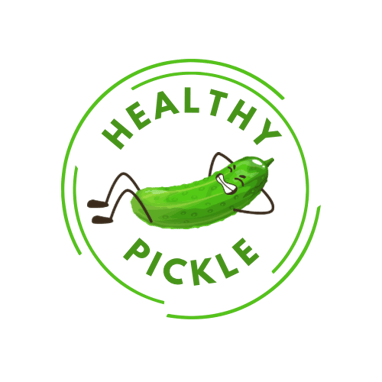
50 of The Best Plant-Based Protein Sources
Excellent sources of protein for vegetarians
NOURISHCOOKED
3/18/20253 min read
50 of The Best Plant-Based Protein Sources
If you’re vegetarian (or just trying to eat more plant-based meals), you’ve probably heard “Where do you get your protein?” more times than you can count. Spoiler alert: vegetarians have plenty of high-protein options!
Let’s break down the best plant-based protein sources to keep your meals delicious, balanced, and packed with nutrients.
1. Legumes: The OG Plant Proteins
🫘 Lentils – 18g protein per cup, perfect for soups, stews, and curries.
🌱 Chickpeas – 15g protein per cup, great for hummus, salads, and roasted snacks.
🖤 Black Beans – 15g protein per cup, a staple for burrito bowls and tacos.
🥣 Edamame – 17g protein per cup, a high-protein snack or salad topper.
🫘 Kidney Beans – 16g protein per cup, great for chili and soups.
🌾 Split Peas – 16g protein per cup, ideal for hearty stews and pea soup.
🥜 Pea Protein Powder – 21g protein per serving, a great supplement for shakes.
🌱 Mung Beans – 14g protein per cup, used in Asian dishes and soups.
💡 Pro Tip: Pair legumes with whole grains (like rice or quinoa) for a complete protein profile!
2. Dairy, Eggs & Tofu: Vegetarian Protein Powerhouses
🥚 Eggs – 6g protein per egg, a breakfast and snack MVP.
🧀 Paneer – 14g protein per 100g, the ultimate vegetarian cheese for curries.
🥛 Greek Yogurt – 20g protein per cup, perfect for breakfast or smoothies.
🧀 Cottage Cheese – 25g protein per cup, amazing on toast or as a snack.
🧀 Parmesan Cheese – 11g protein per ounce, a flavorful addition to pasta and salads.
🍽️ Tofu – 10g protein per ½ cup, a versatile, high-protein soy option great for stir-fries, scrambles, and bowls.
🧀 Ricotta Cheese – 14g protein per cup, great for lasagnas and toast toppings.
🥛 Kefir – 9g protein per cup, a probiotic-rich drinkable dairy option.
🧀 Nutritional Yeast – 8g protein per 2 tbsp, a cheesy-flavored topping that’s packed with B vitamins.
🧀 Mozzarella Cheese – 7g protein per ounce, great for pizzas and melts.
🍛 Tempeh – 21g protein per ½ cup, a fermented soy-based protein powerhouse.
🥛 Skyr Yogurt – 19g protein per cup, an Icelandic yogurt packed with protein.
💡 Pro Tip: Choose full-fat or high-protein dairy for more nutrients and better satiety!
3. Nuts & Seeds: Small But Mighty
🥜 Peanuts – 9g protein per quarter cup, great in peanut butter or trail mix.
🌰 Almonds – 7g protein per quarter cup, perfect for snacking or salads.
🌻 Sunflower Seeds – 6g protein per quarter cup, a crunchy topping for bowls.
🥣 Chia Seeds – 5g protein per 2 tbsp, ideal for puddings and smoothies.
🥜 Cashews – 5g protein per quarter cup, excellent in stir-fries and sauces.
🌰 Pistachios – 6g protein per quarter cup, great for snacking and salads.
🍂 Flaxseeds – 5g protein per 2 tbsp, rich in fiber and omega-3s.
🥥 Hemp Seeds – 10g protein per 3 tbsp, a powerful superfood to add to bowls and smoothies.
🌰 Brazil Nuts – 4g protein per quarter cup, rich in selenium and healthy fats.
🥜 Walnuts – 5g protein per quarter cup, great for brain health and energy.
💡 Pro Tip: Soak chia or flax seeds overnight for a protein-packed, gut-friendly boost!
4. High-Protein Grains & Alternatives
🍚 Quinoa – 8g protein per cup, one of the few complete plant proteins.
🍞 Ezekiel Bread – 8g protein per slice, a sprouted grain bread with a protein punch.
🍝 Whole Wheat Pasta – 7g protein per serving, a great alternative to white pasta.
🌾 Farro – 6g protein per cup, an ancient grain perfect for bowls and salads.
🥣 Oats – 6g protein per cup, an excellent base for breakfast bowls.
🌾 Buckwheat – 6g protein per cup, great for pancakes and porridge.
🍚 Barley – 5g protein per cup, perfect for soups and grain bowls.
🌾 Amaranth – 9g protein per cup, a lesser-known super grain.
🍚 Teff – 10g protein per cup, used in Ethiopian cuisine.
🌾 Millet – 6g protein per cup, a mild and versatile grain.
💡 Pro Tip: Swap white rice for quinoa or farro to increase your meal’s protein content!
5. Bonus: Unexpected High-Protein Veggies
🥦 Broccoli – 5g protein per cup (yes, really!).
🥬 Spinach – 5g protein per cooked cup, an easy addition to omelets and smoothies.
🌽 Corn – 4g protein per cup, a sweet and satisfying grain-veggie hybrid.
🍄 Mushrooms – 3g protein per cup, a hearty meat substitute.
🥑 Avocado – 4g protein per whole avocado, packed with healthy fats.
🥒 Zucchini – 2g protein per cup, great for spiralizing into noodles.
🥔 Potatoes – 4g protein per medium potato, a surprising protein source!
🌶️ Brussels Sprouts – 4g protein per cup, delicious roasted or sautéed.
🥕 Carrots – 2g protein per cup, a crunchy and fiber-rich snack.
🌰 Artichokes – 5g protein per cup, an underrated protein-rich veggie.
🥬 Kale – 3g protein per cooked cup, great for salads and sautés.
💡 Pro Tip: Add extra veggies to every meal for fiber, nutrients, and bonus protein!
Final Thoughts: Get Your Protein, Your Way!
From lentils and chickpeas to eggs, dairy, tofu, tempeh, and whole grains, there are plenty of high-protein vegetarian options to choose from. Whether you’re making a hearty bowl, a protein-packed breakfast, or a filling snack, plant-based protein is easy, delicious, and accessible!
🚀 What’s your favorite vegetarian protein source? Drop a comment below! 🥒😏

The Healthy Pickle
The realistic alternative to getting healthy—small swaps, big impact, zero perfection. 🥒😏
© 2025. All rights reserved.
